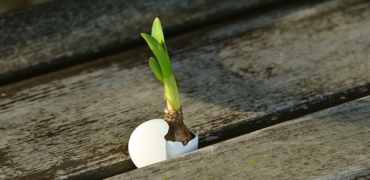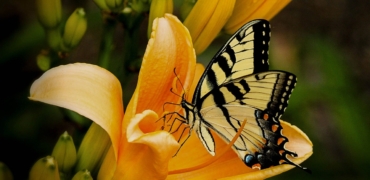Last month, I led a service on, “Building a Living Faith,” where faith is more verb than noun. Acknowledging that the word has so much baggage that many UUs avoid it I asked, Is faith necessary? And answered, for myself, Yes. But not in the usual way (as a doctrinal test to manipulate or exclude).
But what is faith? I asked a few people. I listened: “M y grandchildren give me faith in the future.”
“The dogs in my life teach me faith.” “I find faith in the garden.”
“Kindness.”
“Courage.” “Self- awareness.”
Faith is a slippery word, coming to us from Latin (fides) via Old French (feld, which became foi), meaning oath or promise, implying trust and honesty. The ancient word emerged within systems of “power over :” You made an oath to a life lord with power over you, your family, your business. You made an oath to an all- powerful God, beyond you, beyond the world.
As a human family, we are between worlds in how we think of God: Moving away from God as power outside of us, dictating what faith looks like; growing toward God as power within us, within relationship, in the world; where faith becomes trust in your own experience. The English word trust shares the same root as tree. A tree knows to grow towards the light. We know, within ourselves, what is life-affirming, life-nourishing, life-transforming. Faith means trusting that inner guidance system, turning toward the light.
Our UU sources of faith offer us many perspectives for building a living faith: wisdom from the world’s religions, from science, from contemporary voices, from our own direct experience. I hope we are willing to live beyond old assumptions about the words faith and God. And to open to the power of presence, beyond (yet celebrating) the intellect. I invite and challenge you to engage this inner knowing, to tell your faith stories, to notice how they are transforming in the telling, and to share them in our congregation.





